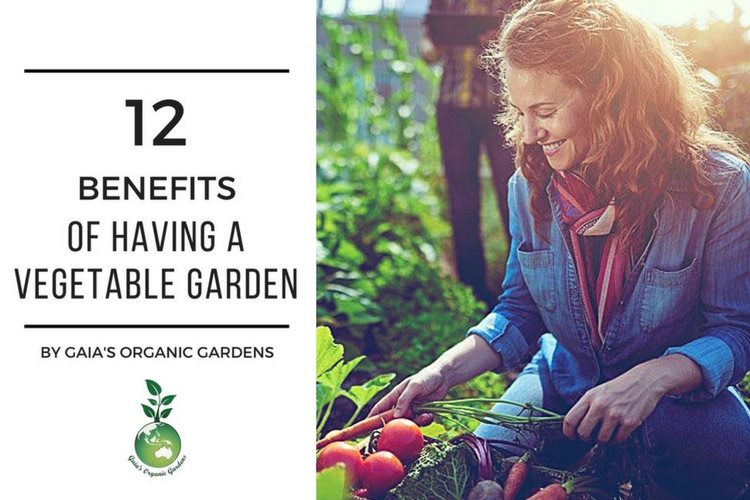Vegetable gardening has become increasingly popular in contemporary society, transforming from a mere hobby into a profound means of fostering self-sufficiency, wellness, and ecological mindfulness. However, as with any endeavor, it is essential to scrutinize the paradigm of costs versus benefits. Is the investment—be it time, effort, or resources—worth the output? This inquiry prompts a comprehensive analysis of the multifaceted advantages of vegetable gardening juxtaposed with the inherent demands it necessitates.
Historical Context of Vegetable Gardening
The roots of vegetable gardening can be traced back through various civilizations, each imbued with unique cultural significances and practices. From the Mesopotamian gardens that catered to both sustenance and spirituality to the meticulously curated herb gardens of medieval Europe, the cultivation of vegetables has always transcended mere utility. In many societies, gardening has represented resilience against socioeconomic hardships, demonstrating the human capacity to transform adversity into nourishment.
Moreover, gardening has often served as a platform for social activism, with movements advocating for sustainable agrarian practices highlighting the labor of marginalized communities. Herein lies a direct correlation between gardening endeavors and the broader dynamics of societal progression. The juxtaposition of older traditions with contemporary farming techniques opens discussions about food sovereignty, indigenous rights, and gender roles in agricultural spaces.
The Benefits of Vegetable Gardening
Although the initial apprehensions about undertaking a vegetable garden may loom large, the benefits are indeed compelling. The multifarious advantages can be categorized into nutritional, environmental, financial, and psychological dimensions.
Nutritional Benefits
One of the foremost arguments for vegetable gardening is the access to fresh and organic produce. Individuals engaged in home gardening can cultivate a variety of vegetables devoid of harmful pesticides and chemicals, thus ensuring superior nutritional value. The act of growing vegetables encourages individuals to incorporate a wider array of produce into their diets, enhancing overall health and well-being. Cardiovascular health, weight management, and the prevention of chronic diseases are intimately linked with the consumption of fresh vegetables, thereby establishing gardening as an ally in public health.
Environmental Impact
In an era marked by grave environmental challenges, vegetable gardening emerges as a proactive avenue for ecological stewardship. Home gardens contribute to biodiversity by supporting various species of flora and fauna, ultimately creating a harmonious ecosystem. Furthermore, localized gardening reduces the carbon footprint associated with transporting food, aligning with sustainable living practices.
Utilizing organic gardening methods allows individuals to engage in regenerative practices that restore soil health, reduce water usage, and promote pest control through natural means. The implications of such practices extend beyond personal gardens, influencing larger community efforts toward sustainability and conservation.
Financial Implications
Transitioning from the theoretical to the practical, the financial cases for vegetable gardening are both compelling and tangible. Initial investments in soil, seeds, and equipment may appear daunting; however, the long-term savings accrued from reduced grocery bills can be substantial. Growing one’s own vegetables can mitigate the impact of inflation and fluctuating vegetable prices, particularly for staple crops.
Moreover, potential economic gains can arise from the successful surplus of produce. A proficient gardener might find themselves with excess vegetables suitable for sharing within the community or selling at local markets. This impromptu micro-economy fosters community resilience and intercultural connections, which can be particularly impactful in a society that often emphasizes individualism.
Psychological Aspects of Gardening
The psychological benefits of cultivating a vegetable garden cannot be overstated. Gardening serves as a therapeutic outlet that can alleviate symptoms of stress and anxiety. Engagement with nature has been shown to enhance mental well-being, promote mindfulness, and cultivate a sense of purpose. Moreover, the act of nurturing plants can instill patience and resilience, traits that extend into other areas of life.
Social Connections and Community Engagement
Gardening offers an exceptional avenue for fostering social connections. Community gardens serve as vibrant spaces where individuals from diverse backgrounds gather to grow food, share knowledge, and learn from one another. These shared spaces amplify not only food security but also community solidarity. The collective effort boosts morale and ensures the transmission of cultural practices related to gardening while addressing contemporary societal challenges such as food deserts and inequality.
Evaluating the Efforts and Challenges Involved
While the advantages of vegetable gardening are undeniably attractive, it is imperative to address the efforts and challenges inherent in this endeavor. Understanding the demands on physical time, mental capacity, and economic investment is critical to obtaining a holistic perspective.
Time Commitment
The cultivation of a vegetable garden necessitates a considerable investment of time and dedication. From the initial stages of soil preparation and planting to the ongoing duties of weeding, watering, and harvesting, the tasks can be labor-intensive. Seasonal variations may further complicate these responsibilities, demanding adaptability and foresight. For individuals balancing myriad responsibilities, such as work and family commitments, these time constraints may present significant barriers to successful gardening.
Knowledge and Skill Acquisition
A robust understanding of gardening techniques, plant species, and soil health is vital to ensure successful yields. While many resources are available for novice gardeners, embarking on this journey necessitates a willingness to learn, experiment, and sometimes fail. This learning curve can provide an initial sense of overwhelm, potentially dissuading individuals from fully committing to the gardening process.
Practical Limitations
Practical limitations often play a significant role in the feasibility of home gardening. For urban dwellers, limited space, inadequate sunlight, and soil contamination can inhibit successful vegetable cultivation. However, container gardening or vertical gardening can serve as viable alternatives, particularly in urban environments. These adaptations require innovation but can often yield fruitful results.
Invasive Species and Pests
Gardeners must remain vigilant against invasive species and pests that can threaten their crops. The management of pests often relies on a mix of preventative measures and responsive strategies that can be time-consuming when attempting to maintain organic practices. Educating oneself about potential threats and adopting biologically-based solutions can mitigate these challenges, although they do necessitate ongoing effort and supervision.
The Balance of Benefits and Efforts
In sum, the question of whether vegetable gardening is “worth it” emerges as a nuanced discourse. The substantial benefits gleaned from enhanced nutrition, environmental stewardship, financial savings, psychological well-being, and social connection are offset by the demands of time, skill acquisition, and external challenges. Acknowledging the complexity of this endeavor fosters a more profound appreciation for the historical significance of vegetable gardening as an agent of empowerment, community building, and social activism.
Ultimately, the choice to engage in vegetable gardening can be seen as an affirmation of personal and collective agency in an ever-evolving landscape. As individuals deliberate over their relationship with food sources, gardening stands as both a practical solution and a radical act of reclaiming control over sustenance, thus reaffirming its historical role in the ongoing struggle for an equitable society.









Leave a Comment